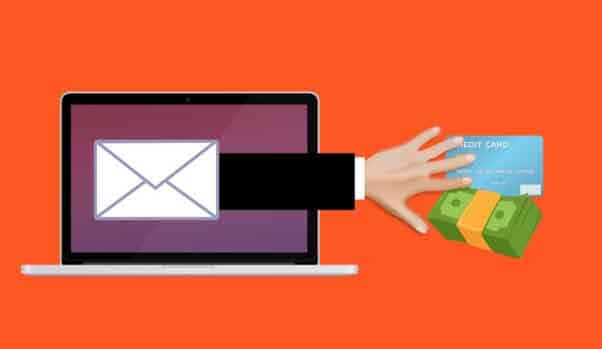The need to keep one step ahead of cybercriminals has never been more important. Our world; our day to day errands like paying the bills, our spending, and shopping, even our interactions with people are taking place in cyberspace more often. This has never been more so than during this time of the Covid-19 pandemic with internet traffic reportedly increasing by over 40% and, in the USA alone the number of people using internet banking has increased by 50%. Unfortunately, this has also meant that for Cyberspace scammers there have been more targets and new ways to operate. Indeed, the UN has stated that there has been an increase in malicious emails by 600% during the pandemic.

However, emails are just one-way criminals and internet fraudsters can con people out of their private details and their money. There are many other examples of cyber-crime out there and to keep yourself safe and to keep one step ahead of these cyberspace scammers you need to be as well informed as possible.
Firstly, you need to know about the different types of cyber-crime and secondly, you need to be aware of the best ways to protect yourself against cybercrime.
Types of cyber-crime include but are not limited to (as these tech-savvy scammers come up with new ways to con people all the time):
- Email scams – these include things like ticket scams where you receive an email offering hard to get tickets for concerts or sporting events but of course once you hand your money over you either don’t get a ticket at all or get a fake one. They also include fake lottery scams; these emails tell you you’ve won a large amount of money and ask to you give your bank details so your ‘winnings’ can be paid in.
- Hacking – this is where someone accesses your device and therefore has access to everything on it from internet banking and other financial data to personal information, sometimes with the intention to blackmail the user or to sell your information to someone else. Hacking is done in many different ways; via unsafe websites, emails, people pretending to be from computer companies, internet providers, or internet security providers either via emails or even your phone.

- Phishing – is when you get an email from someone pretending to be a legitimate business, fake emails from your bank, energy company, etc including voice phishing (vishing) they ask you to follow a link or provide your password, bank details or PIN.
- Viruses – opening some links, web pages or emails can import viruses into your device. Viruses can change the way your computer runs, even locking you out of it. People then either use the virus to access or hack your device or extort money to fix the problem.
- Identity theft – when someone pretends to be you, after accessing your personal information, usually to take out loans or credit cards.

Luckily, there are plenty of things you can do to minimize the chances of falling victim to cyber-criminals. Here are 6 practical ways to keep one step ahead of online scammers and con-artists:
- Download updates, software, and patches when prompted to on your device.
- Use passwords that you can remember and don’t write them down especially in files on your device. Make your passwords strong by using a mix of upper case/lower case, symbols, and numbers.
- Regularly check your privacy settings on social media and be careful about what you choose to share.
- Install and update anti-virus software on all your devices.
- Don’t open emails or attachments you are not sure of.
- Shop safely, look for the padlock sign on the top left of your browser.
All content herein is owned by author exclusively. Expressed opinions are NOT necessarily the views of VNR, authors, affiliates, advertisers, sponsors, partners, technicians, or VT Network. Some content may be satirical in nature.
All images within are full responsibility of the author and NOT VNR.
Read Full Policy Notice - Comment Policy





























